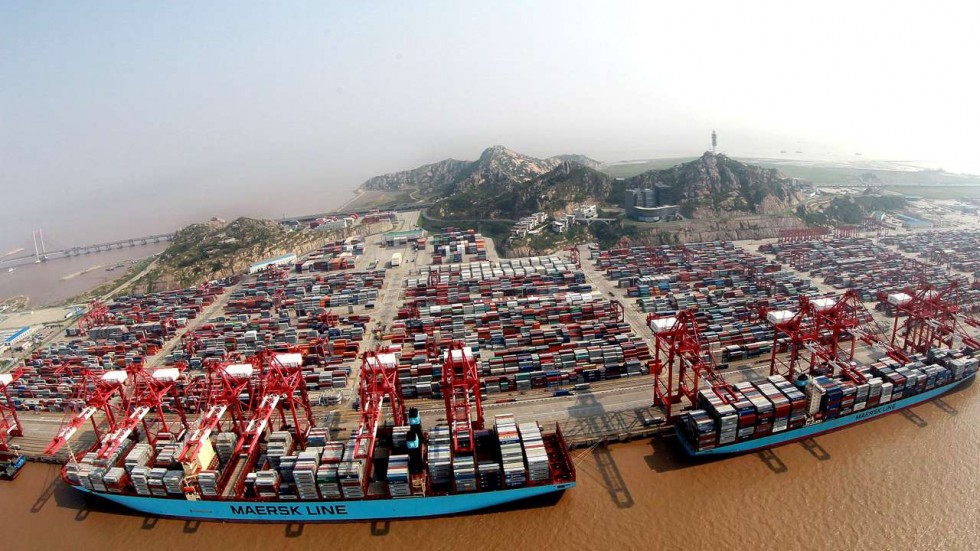- FG Raked in $2bn from Onne Free Zone in Six Years
The federal government realised a whopping $2billion as revenue from the Onne Oil and Gas Free Zone (OGFZ), in the last six years.
Managing Director of Oil and Gas Free Zones Authority (OGFZA), Mr. Umana Okon Umana, disclosed this at the first session of the Nigeria Business Roundtable held in Lagos at the weekend.
The OGFTZ was developed by INTELS Nigeria Limited to attract foreign direct investment (FDI), create employment as well as enhance Nigeria’s technological and industrial advancement.
The Zone, which hosts the operation of more than 170 companies, is one of the fastest growing in the world.
According to Umana, one of the keys to attaining greater productivity and growth in the Nigerian economy is making use of the potential of a free trade zone which offers an increase in investment, job creation and exports.
He said free trade zones also provide companies with streamlined regulations, reduced tax obligations and state-of-the-art infrastructure.
The OGFZA boss also revealed that the federal government is also introducing further reforms into the operation of free trade zones in the country, culminating in the reduction of license renewal duration from 14 days to 48 hours for investors that meet all requirements in line with the ease of doing business policy of the federal government.
“Statistics show that there are 3million companies arising from over 5,000 free trade zones (FTZs) around the world, which account for over 45 million jobs, all showing efficacy of having an effective FTZ in a global perspective. FTZ in developing countries can drive growth in different sectors not only in oil and gas; attract increased foreign investment inflow, create employment, transfer skills and technology,” Umana added.
General Manager, Legal Services of INTELS Nigeria Limited, Amaopusenibo Mike Epelle, had while speaking at the Rivers Goldeen Jubilee Award in Port Harcourt, Rivers State, said the company was fully committed to maximising, in a sustainable manner, the use of Nigerian human resources, materials, equipment and services in its operations without compromising the company’s values, quality, health, safety and environmental standards.
INTELS, he further noted has been a trusted partner to major oil and gas producing companies in Nigeria and a monumental logistic partner to the Nigerian Ports Authority (NPA) in the development of ports infrastructure and service in Nigeria.
He added: “In over 30 years, we have added substantial value to the Nigerian Oil and Gas service industry and the operators have found our services strategic to their operations.
“In the maritime sector, INTELS’ operation as a port infrastructure developer and maritime service provider reinvigorated and brought the needed momentum and life to Nigerian ports and the maritime industry with improved capacity to serve the nation. These efforts by INTELS have in turn boosted earnings and contributions by these sectors to the Nigerian economy while generating the much-needed employment for Nigerians.
“To achieve our vision of providing an integrated, efficient, reliable and cost effective logistics solution to the Oil and Gas industry in Nigeria, we introduced an innovative “one-stop-shop oil service centre concept” designed to meet the growing specialised needs of oil producing companies in one location to provide an integrated, efficient, reliable and cost effective logistics solution to operators in the oil and gas industry in Nigeria.
“This innovative concept has enhanced service delivery and turnaround time for oil and gas industry projects and thus endeared INTELS to its partners.”


 Forex2 weeks ago
Forex2 weeks ago


 Naira2 weeks ago
Naira2 weeks ago
 Billionaire Watch1 week ago
Billionaire Watch1 week ago




 Naira2 weeks ago
Naira2 weeks ago




 Naira1 week ago
Naira1 week ago




 Naira4 weeks ago
Naira4 weeks ago
 Nigerian Exchange Limited4 weeks ago
Nigerian Exchange Limited4 weeks ago


 Naira3 days ago
Naira3 days ago





















